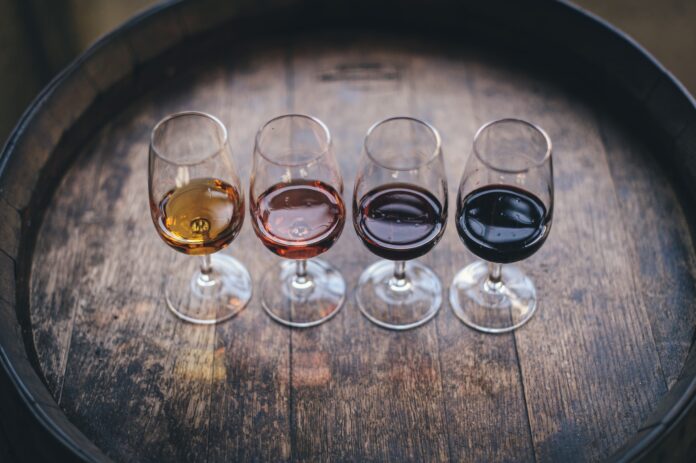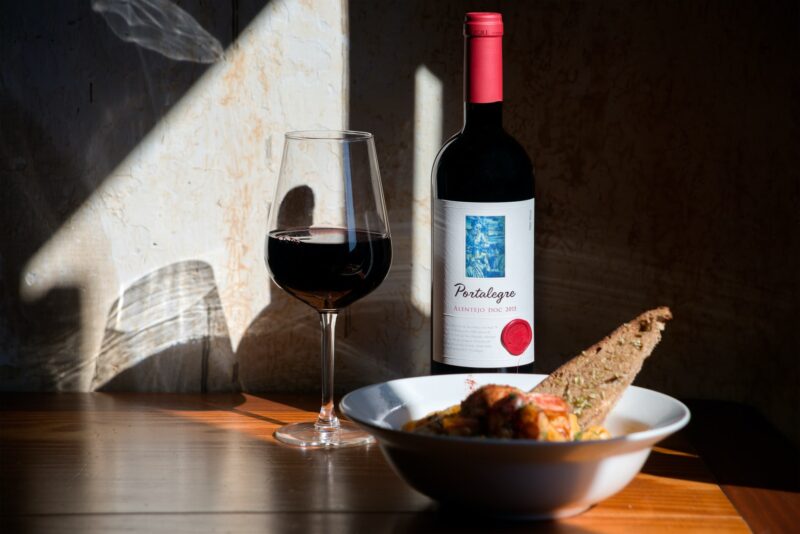
Veganism is all about making the right choices. It covers the food you eat, the clothing you wear, the things you use, and the beverages you drink. With the growing clamor over climate change and global warming, turning vegan gives you a sense of responsibility that you have towards the environment and its sustainability.
However, it may seem that things aren’t going in your favor when you are on a dietary restriction. Nowadays there are many anti-animal cruelty alternatives to things like bacon, chicken, milk, and eggs, which you would’ve savored before you made the important decision to switch to vegan. Many health experts and fitness conscious people are adopting veganism as a healthier way of life. Websites like Vegan Liftz are helping people find vegan products as per their fitness needs.
This does not necessarily mean you need to compromise on your taste buds and penchant for lavish foods if you know how they’ve been prepared. That’s true even for a bottle of wine you’re considering for your next big celebratory meal.
(Vegan Wine: Animal-Friendly from the Vine to the Glass. Source: Unsplash)
All wines are not vegan

You can wonder if wines aren’t vegetarian in the first place since they’re made from grapes. Truth be told that not all sparkling liquor that goes onto the dining table are anti-animal cruelty in nature. All wines aren’t fully veggie because of the fining agents used in their production and keep. These fining agents are used during the production of wines mainly to curb its bitterness and astringency, remove proteins from it that cause haze formation in it, or to lessen its color. Therefore, these fining agents can totally alter the wine before taking their first sip.
The liquor industry is pricked with animal products, but importantly most vegans are totally unaware of it. Why is that so? That’s because the alcohol companies do not label the animal productions used in manufacturing that beverage. It is possible that the brand’s name unrecognizable ingredients like ‘isinglass’ or ‘pepsin’ which are derived from fish and pigs, respectively.
While most wines are pro-veg, some of them are produced using animal-related substances during the filtration process. These filters often include gelatine from fish bladders or casein which comes from milk or bone marrow. Though these substances are removed from the drink it no longer remains fully veg as the particles of these fining agents get absorbed into the wine.
What makes wines vegan?

Contrary to the animal-derived substances, animal-friendly agents are now being used commonly in the manufacturing of vegan liquors. These include bentonite, pea protein, and activated charcoal that is used during the fining process to ensure its animal-friendly nature of the drink.
Bentonite – a favorite among winemakers, is a type of clay that is good at absorbing the particles that make it cloudy rather than bright and clear.
Pea proteins are similar to bentonite and act like gelatine, without its animal-derived source.
Activated charcoal is another common substance used by vegetarian winemakers as it soaks up unwanted colors from the fermented drink without twisting its taste.
Some winemakers go for the natural self-fining process without any outside agents so that the natural appeal of the fermented drink remains intact.
How to find out if the wine is vegan or not?

One of the major challenges in front of the wine sellers is that they seldom indicate the bottles the nature of processes used for its production. This has led to a lot of consumers’ need for a mandatory ingredient list on the wine labels in order to specify that the product is fully vegetarian.
The reality isn’t picture perfect when it comes to vegetarian-friendly wine selection. Many stores are still grappling with the idea of animal-friendly wines and not many websites are able to give information on specific ingredients in their drinks.
While some winemakers may claim that their beverage went through an animal-friendly manufacturing process but there’s no way the consumer can find out the authenticity to that claim. Thankfully, there are a growing number of stores and agencies which are offering a special selection of vegan, organic, and biodynamic wine just so that the consumer can choose the right product as per the requirement.
One of the simpler ways to find out is to read out disclaimers like ‘may contain traces of fish products, milk products, or egg whites’ mentioned on the products. This also helps those customers who are allergic to meat, fish, or dairy products.
To help make a proper demarcation among various types of liquors, companies like Barnivore – a searchable alcohol directory – come in handy. Others like BevVeg give a ‘Vegan Certificate’ to products so that the customer can have a sense of trust while going for an animal-friendly brand.
In cases where there is no certainty, it is safest to ask the winemaker directly and enquire about the manufacturing details.
(Vegan Wine: Animal-Friendly from the Vine to the Glass. Source: Unsplash)
Does it taste different from regular wine?

As a matter of fact, vegan wines do not taste different from regular ones. That’s because the substances that go into its production – the fining agents – do not impact the taste in any way. What does differentiate wine tastes are grape quality, terroir, and manufacturing techniques.
Vegan wines age just like conventional wines. For white wines or Rose, it is recommended that you consume within a year if it is free of preservatives. Red wines should be best consumed between two-three duration as the tannins from the red grape skins have natural preservatives.
Vegan Wine Options

In Canada, you can go for Bodega from Spain and/or Argentina that have animal-friendly red and white options at the Wine Rack in Ontario. Wayne Gretzky Estate Wine, in both red and white varieties. Southbrook has several vegan wines, including a 2008 red, 2009 rosé, and the Connect Organic Red.
In the USA, Fleur de California, the ‘Three Buck Chuck’ you can find at Trader Joe’s and Frey Vineyards’ wines are organic, vegan, and gluten-free.
Now that you have understood that you don’t have to compromise on the taste of your favorite wines, go ahead and add them to your home store and cherish them in your next big meal.



















